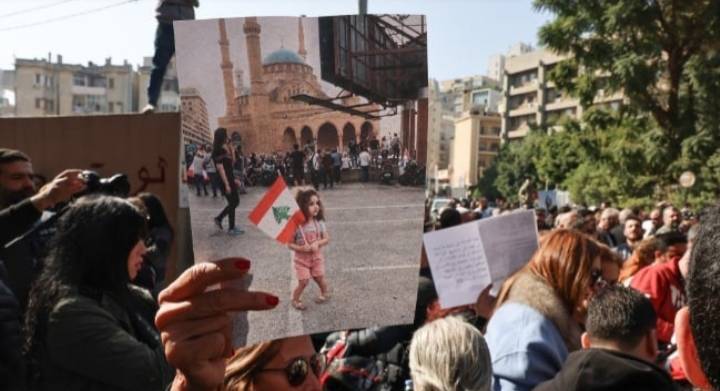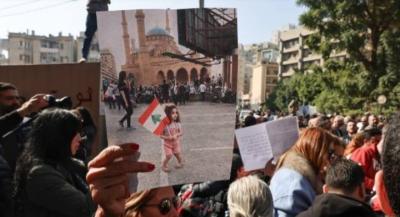The relative calm regarding the judicial file has not coincided with any significant breakthrough in addressing the political crisis and accelerating the election of a president who would tackle the worsening economic crisis, which threatens to ignite a popular revolution. Meanwhile, the judicial crisis remains stagnant, with the families of victims threatening to return to the streets, potentially leading to increased tension and escalation. In the context of efforts to resolve these crises, MP Ghassan Skaf mentioned in a statement to "Anbaa" electronic newspaper that he continues his endeavors aimed at electing a president and has begun to sense some positive atmospheres regarding this file. He expects that matters will be easier in the coming week, describing the situation in the country as delicate and difficult, especially after recent events in the judiciary, which have intertwined various issues.
Skaf observed that while the banking sector, schools, hospitals, and the economy have been undermined, it seems that the judiciary has similarly been assigned to be compromised. He expressed concern that we might be on the verge of experiencing a famine akin to that of 1914 and the dangers reminiscent of 1975. He revealed his role as a mediating and peaceful figure in the presidential file, aiming to align viewpoints to reach a list of candidates and proceed to the council to elect one of them. However, some are still clinging to other names, and these efforts have not yet matured, as those who relied on foreign intervention have realized that the latter has shut down all its engines and does not wish to engage in the presidential file. He downplayed the significance of the Paris meeting as it has become meaningless, stating that the issues to be discussed pertain to humanitarian matters, and a French Deputy Assistant Secretary of State indicated that participants would not address the qualifications of a president, hence one cannot depend on external support.
For his part, MP Ahmed Al-Khayr of the National Moderation Bloc indicated that his bloc recognizes the existing issues within the judicial body, which can only be addressed through the Supreme Judicial Council. In an interview with "Anbaa" electronic newspaper, he affirmed that their bloc distances itself from interfering in the judiciary out of concern for the judiciary itself, suggesting that recent events should remain within the judicial framework. He anticipates a meeting of the Supreme Judicial Council next week to make a decision that serves the country’s interest, the judicial body, and the rights of the victims' families.
Al-Khayr added, "If we want to enter the legal framework, we find that each party wants to steer matters to its advantage. There is a consensus that what Judge Tarek Bitar did was unexpected without referencing a judicial authority, which, for legal professionals, is a misstep. The same applies to the Attorney General of Cassation, Judge Ghassan Ouiedat, as there was an error despite his justification for this decision to prevent chaos." He emphasized that as politicians, it is not our right to determine who is right, pointing out that our role is to exit political conflicts and leave judicial matters to those authorized to resolve them.
Regarding the presidential aspect, Al-Khayr noted that matters remain as they were, mentioning a more serious momentum that could compel all those aware of the critical situation to recognize that a progressive step is hoped to be accepted by all parties. This is the safest path to finding a solution that serves the country's interests, as the president elected for an exceptional mission needs a consensus from all political factions to navigate this difficult phase. He added that the country is bound by consensus, making it difficult to return to democratic practices and vote for several candidates, where achieving 65 votes would deem one as the winner of the presidency.
Amidst this waiting period, public anger intensifies in various regions, protesting against the economic, judicial, and educational chaos, which may threaten to destabilize security as the crisis worsens and finding adequate solutions to prevent worse outcomes becomes increasingly challenging.




